President Trump’s remarks should inspire Nigeria to act decisively in protecting its citizens and rebuilding international trust
ABUJA, Nigeria — November 2025.
The International Human Rights Commission (IHRC Corporation) has urged the Federal Government of Nigeria to treat recent remarks by U.S. President Donald J. Trump on the country’s security crisis as a call for urgent leadership and constructive engagement — not as an attack on the nation’s image.
In a statement endorsed by Prof. h.c. Rafal Marcin Wasik, IHRC Corporation Secretary-General, Peacemaker, the Commission emphasised that Nigeria’s current challenges demand unity, responsible governance, and immediate international coordination to prevent further humanitarian tragedy.
“When human life is endangered, silence is not neutrality — it is neglect,” said Prof. h.c. Rafal Marcin Wasik, IHRC Corporation Secretary-General, Peacemaker. “Nigeria’s leadership must rise above political divisions to protect all citizens equally and to demonstrate to the world that Africa’s largest democracy stands firm for peace, human dignity, and justice.”
President Trump reportedly described the escalating violence and targeted killings in parts of Nigeria as “acts of genocide”, prompting intense global debate. The IHRC stated that while such remarks may appear harsh, they should be interpreted as a wake-up call for decisive action rather than an affront to the nation’s image.
IHRC: Leadership must turn criticism into action
Through its Ambassador-at-Large and Head of Mission in Nigeria, H.E. Ambassador Dr. Hezekiah Duru, the Commission reaffirmed that even criticism, when rooted in humanitarian concern, should serve as a catalyst for reflection and reform.
“Innocent Nigerians — Christians, Muslims, and those of no faith — continue to suffer death, displacement, and trauma as a result of terrorism and armed banditry,” Ambassador Duru stated. “The Government must act decisively to prevent deeper diplomatic mistrust and further national trauma.”
The IHRC underlined that persistent insecurity across the North, Middle Belt, and South East exposes critical gaps in citizen protection. It urged President Bola Ahmed Tinubu’s administration to view President Trump’s remarks as a challenge to rebuild public confidence and restore Nigeria’s global standing.
Diplomatic engagement and institutional reform
The Commission encouraged Nigeria’s newly appointed security chiefs to adopt intelligence-driven, preventive strategies, warning that waiting for attacks before responding only deepens instability.
“You cannot sleep under a burning roof and expect to wake up whole,” the IHRC noted. “The time to act is now — before isolated violence hardens into a national crisis.”
It called for strengthened collaboration with the United States, the European Union, the United Nations, ECOWAS, and the African Union, stressing that coordinated diplomacy is essential to confronting terrorism and displacement.
“Diplomatic silence during global scrutiny may be mistaken for indifference,” the Commission warned. “Transparent dialogue with allies will reaffirm Nigeria’s commitment to peace and human rights.”
Proposal for a High-Level Diplomatic Advisory Council
To enhance credibility and trust, IHRC proposed the establishment of a High-Level Diplomatic Advisory Council, composed of senior statesmen, jurists, and international relations experts. Such a council, the Commission stated, would guide Nigeria’s strategic engagement with global partners and demonstrate its seriousness in rebuilding national and international confidence.
Human rights and constitutional guarantees
The Commission reminded that Section 38(1) of Nigeria’s 1999 Constitution — alongside the Universal Declaration of Human Rights (1948) and the International Covenant on Civil and Political Rights (ICCPR) — guarantees freedom of thought, conscience, and religion.
“These must remain living principles, not dormant clauses,” the statement read, noting that unchecked terrorism and kidnappings continue to undermine national stability and trust abroad.
Ambassador Duru reaffirmed that Nigeria must lead its own rescue mission through stronger institutions, interfaith dialogue, transparent governance, and a renewed commitment to the sanctity of human life.
“The world is watching,” he said. “Inaction only fuels misinformation and external interference.”
A message from the IHRC Corporation Secretary-General
Prof. h.c. Rafal Marcin Wasik, IHRC Corporation Secretary-General, Peacemaker, reiterated the Commission’s readiness to cooperate with Nigerian authorities and international allies, stressing that IHRC’s mission is one of partnership, not criticism.
“Our role is to strengthen nations in crisis, not to judge them. Nigeria’s strength lies in its unity and moral courage to act when peace and justice are at risk,” he stated.
A call for unity and decisive action
IHRC reaffirmed its ongoing commitment to peacebuilding, humanitarian assistance, and human rights monitoring across Nigeria.
“A tree does not stand alone in the storm,” the statement concluded. “Unity — the lifeblood of our nation — is now under threat. Nigeria’s destiny as Africa’s democratic leader depends on its courage to protect its citizens and restore peace. The time for decisive action is now.”
Reported by: Fidelis Onakpoma
IHRC Head of Media and Strategic Communications Nigeria
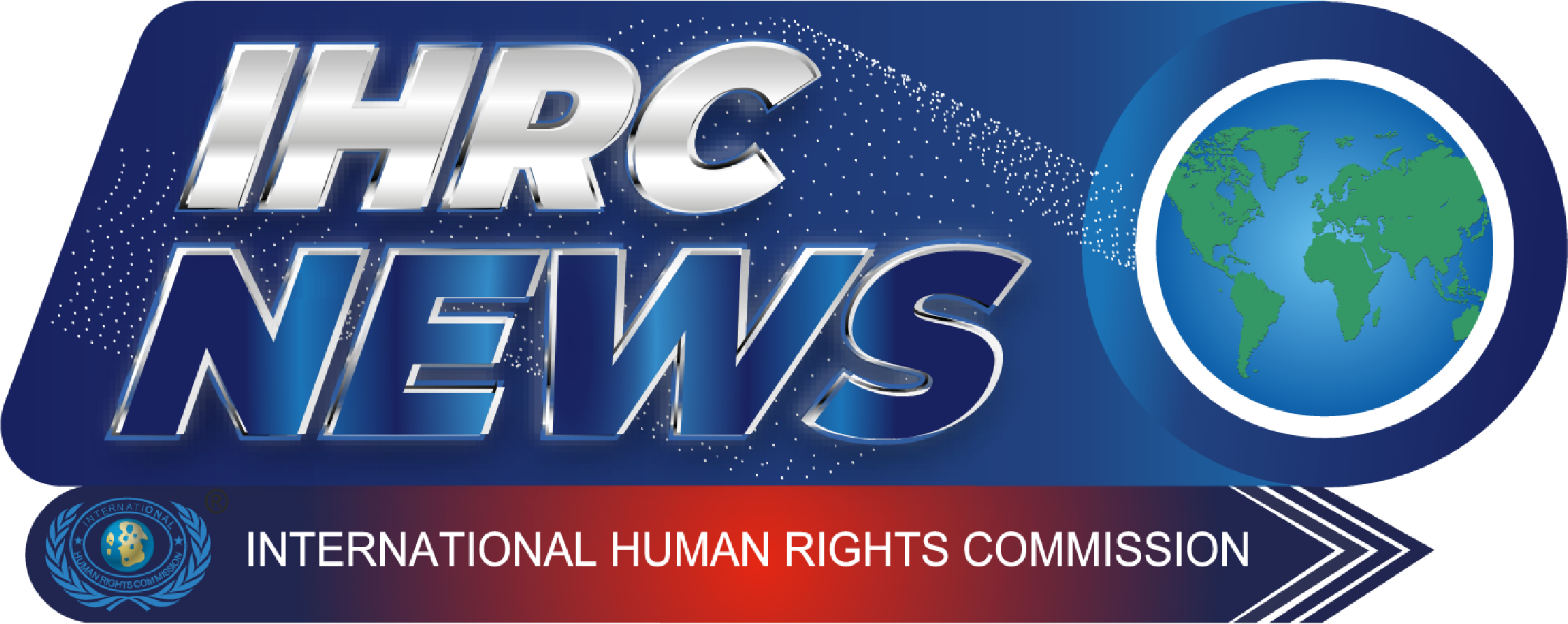


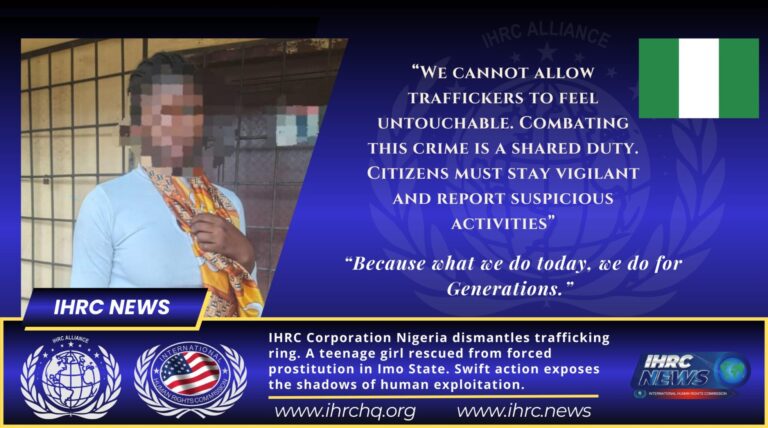
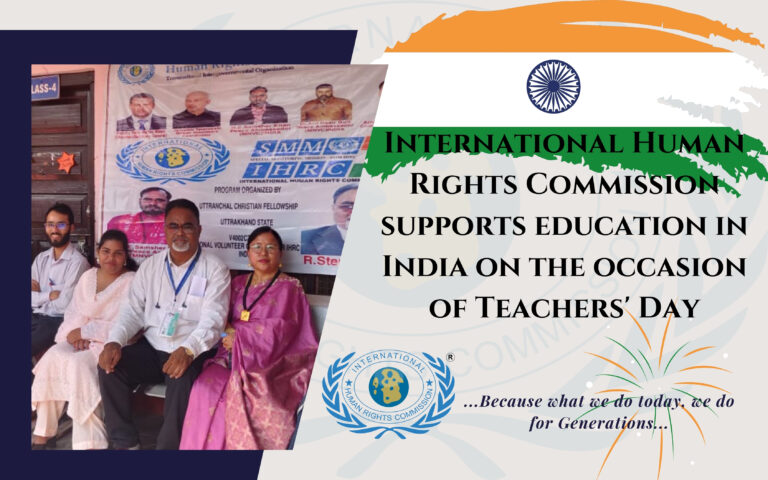
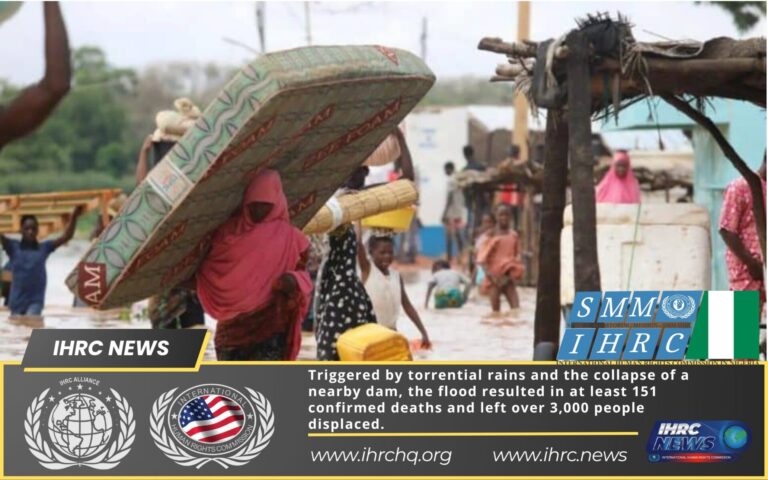
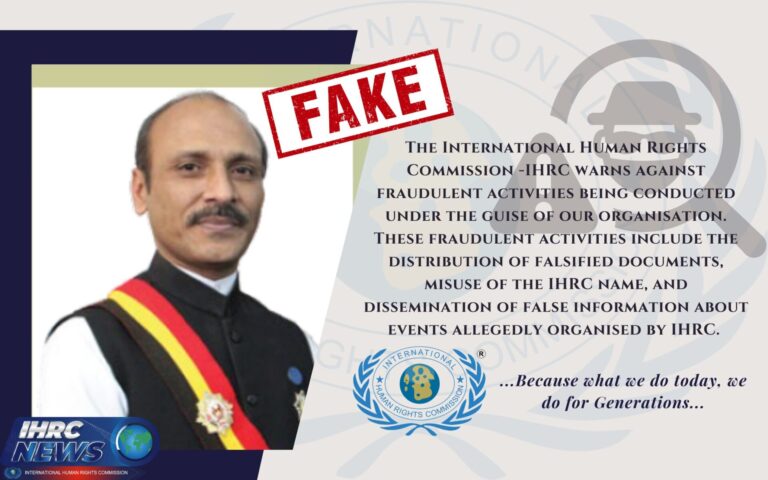

lHRC يوما بعد يوم تزايدت وتطورت
حماية الانسان والعيش بسلام
كل يوم، تزايدت وتطورت IHRC تحت قيادة البروفيسور السير رافال م. وسيم.
نحن فخورون وسعداء
day by day IHRC increased & enaresed under the leadership of Prof.sir Rafal M Wasim.
we are proud and happy.
day by day IHRC increased & enaresed under the leadership of Prof.sir Rafal M Wasim.
we are proud and happy.